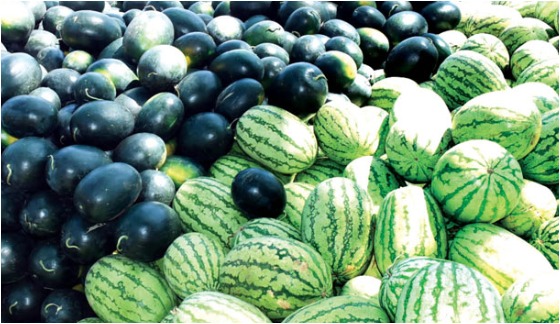
Fruits and vegetables are excellent sources of hydration, particularly because they have high water content. This can be especially beneficial during hot weather or when people may not be consuming enough fluids throughout the day. Here are some key points about the hydration benefits of fruits and vegetables:
- Water Content: Many fruits and vegetables have a high water content, ranging from 80% to 95% or more. Examples of fruits with high water content include watermelon, cucumber, oranges, and strawberries. Vegetables like cucumber, lettuce, celery, and zucchini are also known for their high water content.
- Natural Electrolytes: Some fruits and vegetables, such as bananas and potatoes, contain natural electrolytes like potassium. Electrolytes are essential minerals that help maintain proper fluid balance in the body, especially during periods of increased sweating or dehydration.
- Hydration Support: Consuming fruits and vegetables with high water content can contribute to overall hydration, complementing the intake of other beverages like water and herbal teas.
- Reduced Caloric Intake: Because fruits and vegetables are relatively low in calories compared to many processed foods, they can help with weight management while providing valuable nutrients and hydration.
- Digestive Health: The water and fiber in fruits and vegetables support healthy digestion and prevent constipation, further promoting overall well-being.
- Natural Snack Option: Fruits and vegetables can serve as refreshing and hydrating snacks, offering a better alternative to sugary and high-calorie snacks.
- Physical Activity Support: Staying hydrated is crucial, especially during physical activities. Fruits like oranges and watermelon, and vegetables like cucumber and bell peppers, can be hydrating additions to pre- or post-exercise snacks.
- Variety of Flavors: Fruits and vegetables come in various flavors, colors, and textures, making it enjoyable to consume a diverse range of hydrating options.
Remember that while fruits and vegetables are valuable sources of hydration, they should not replace the importance of drinking plain water throughout the day. Water remains the most effective and direct way to stay properly hydrated. The National Academies of Sciences, Engineering, and Medicine recommend a daily fluid intake of about 3.7 liters (or about 15.5 cups) for men and 2.7 liters (or about 11.5 cups) for women, including fluids from all sources, including water, other beverages, and water-rich foods.
To ensure adequate hydration, it’s essential to pay attention to your body’s thirst signals and drink water or hydrating beverages regularly throughout the day. Combining water intake with a diet rich in hydrating fruits and vegetables can support overall hydration and contribute to your daily fluid needs.
